Here’s one of the worst title tag rewrites that I’ve seen:
Great example of Google rewriting the title tag and getting it very wrong
— Charles Meaden (@charlesmeaden) September 6, 2021
For non UK folk, the HMRC is the UK tax collectors pic.twitter.com/YbpWaEmSjo
Here’s the actual title tag for good measure:

Google made some adjustments to the initial update and now claims that it uses the title tag around 87% of the time. We have the data to verify or disprove these claims, so that’s what we did.
We analyzed the SERP titles and title tags for 953,276 pages ranking in the top 10 results to gain valuable insights.
Here they are, starting with a bit of a surprising statistic.
7.4% of top-ranking pages don’t have a title tag
I expected that almost all pages ranking in the top 10 search results would have a title tag. Missing title tags in 7.4% of pages ranking in the top 10 results seems like a rather high number.
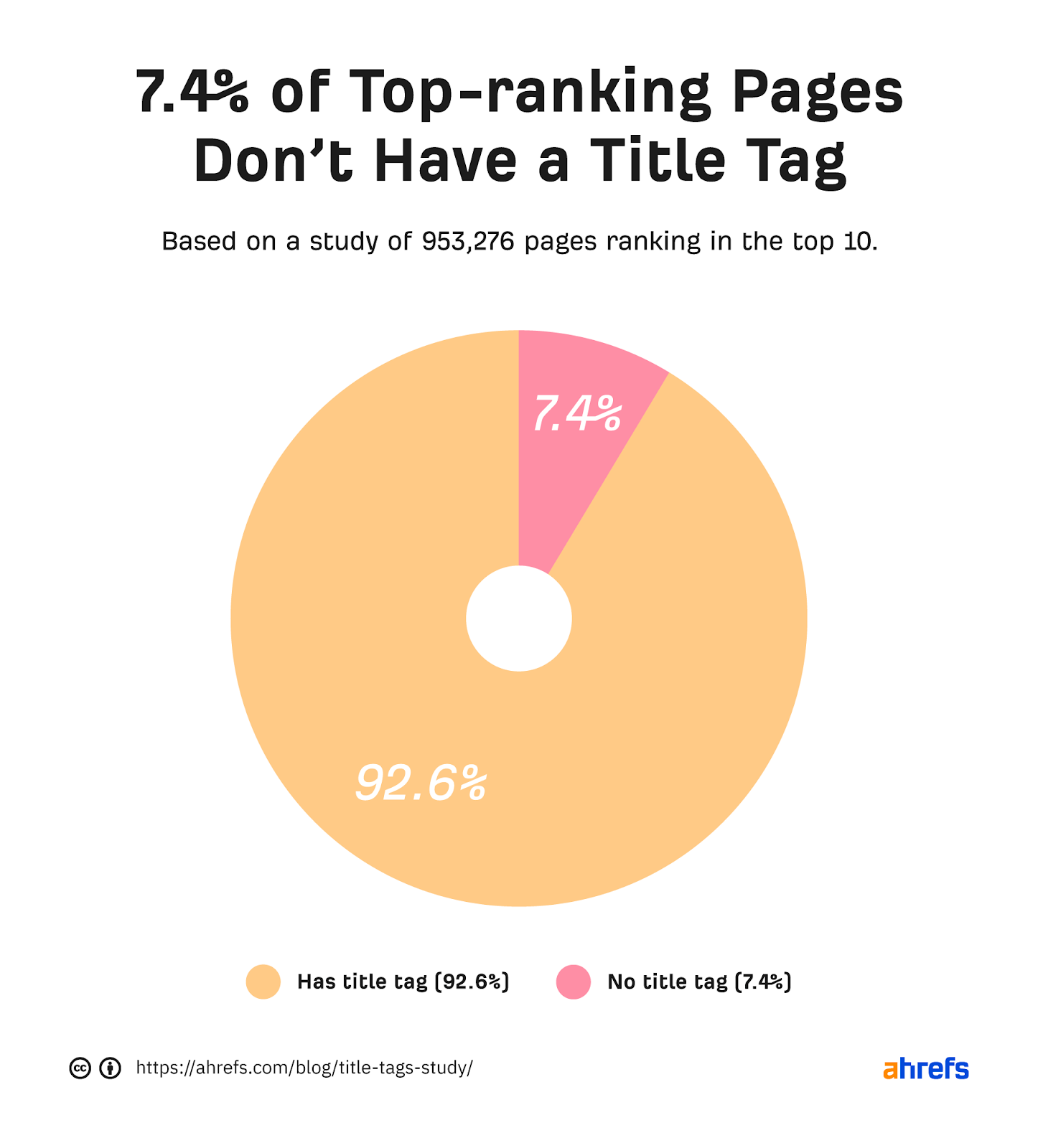
So, for the vast majority of pages with title tags, how often does Google rewrite them?
Google rewrites title tags 33.4% of the time
Using the title tag only 66.6% of the time is quite a difference from the 87% that Google claims. But as with most things, the devil is in the details (pun intended).
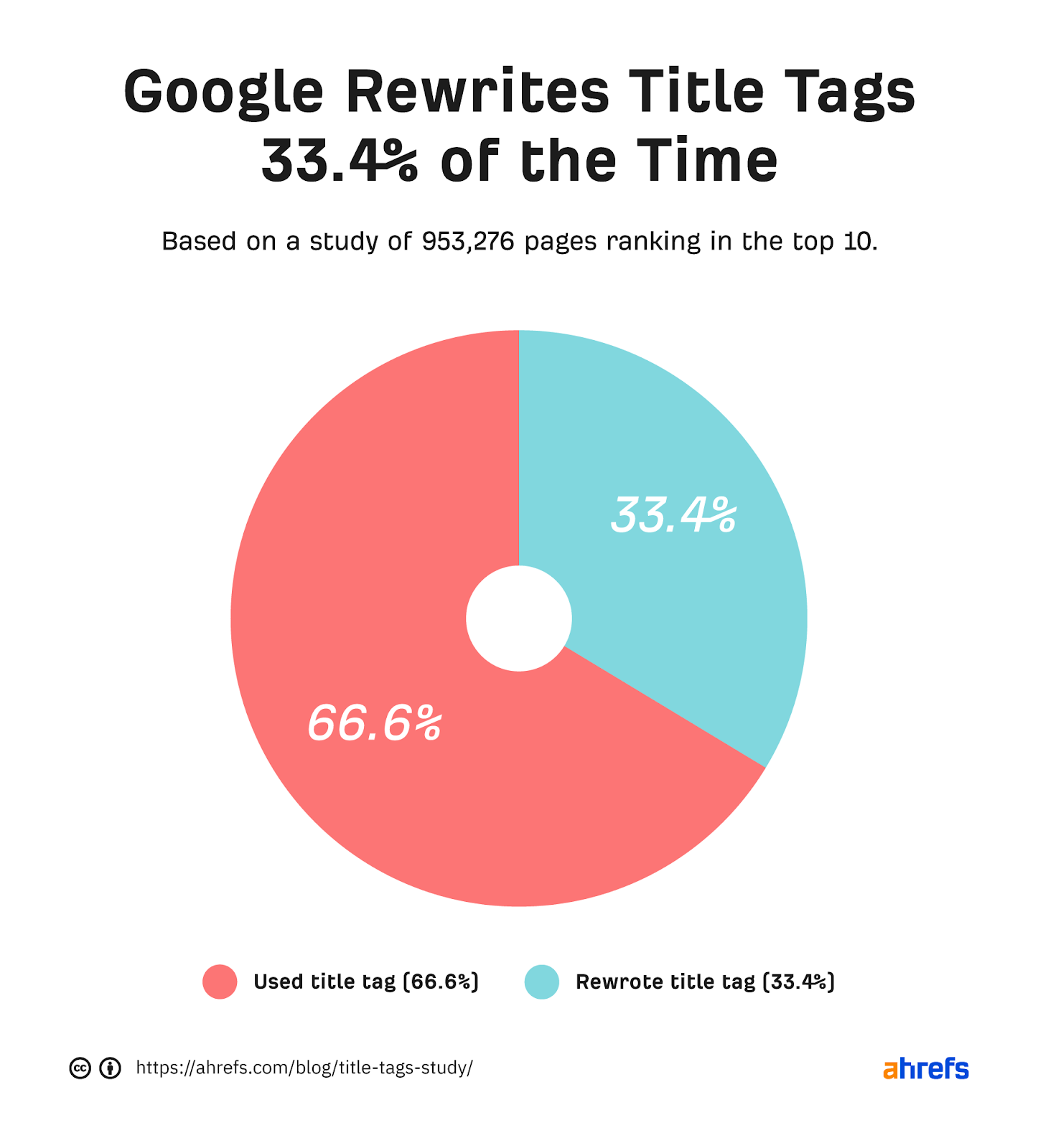
Based on our methodology, we considered minor discrepancies between title tags and SERP titles as a match. This is because slight variations in punctuation and the addition of brand names have always been common. If we were to consider only 100% matches, then the rewrite rate would be much higher.
On the other hand, we only considered matches if Google kept the rest of the words in the same order. And this is one of Google’s earlier statements:
Of all the ways we generate titles, content from HTML title tags is still by far the most likely used, more than 80% of the time.
This could mean that Google considers a match when the word order is changed. Or I might be just overthinking it.
Anyway, what you should care about most is how these changes affect your pages. For example, Google currently rewrites 31.6% (1,314 cases of 4,162 pages) of the title tags on ahrefs.com:
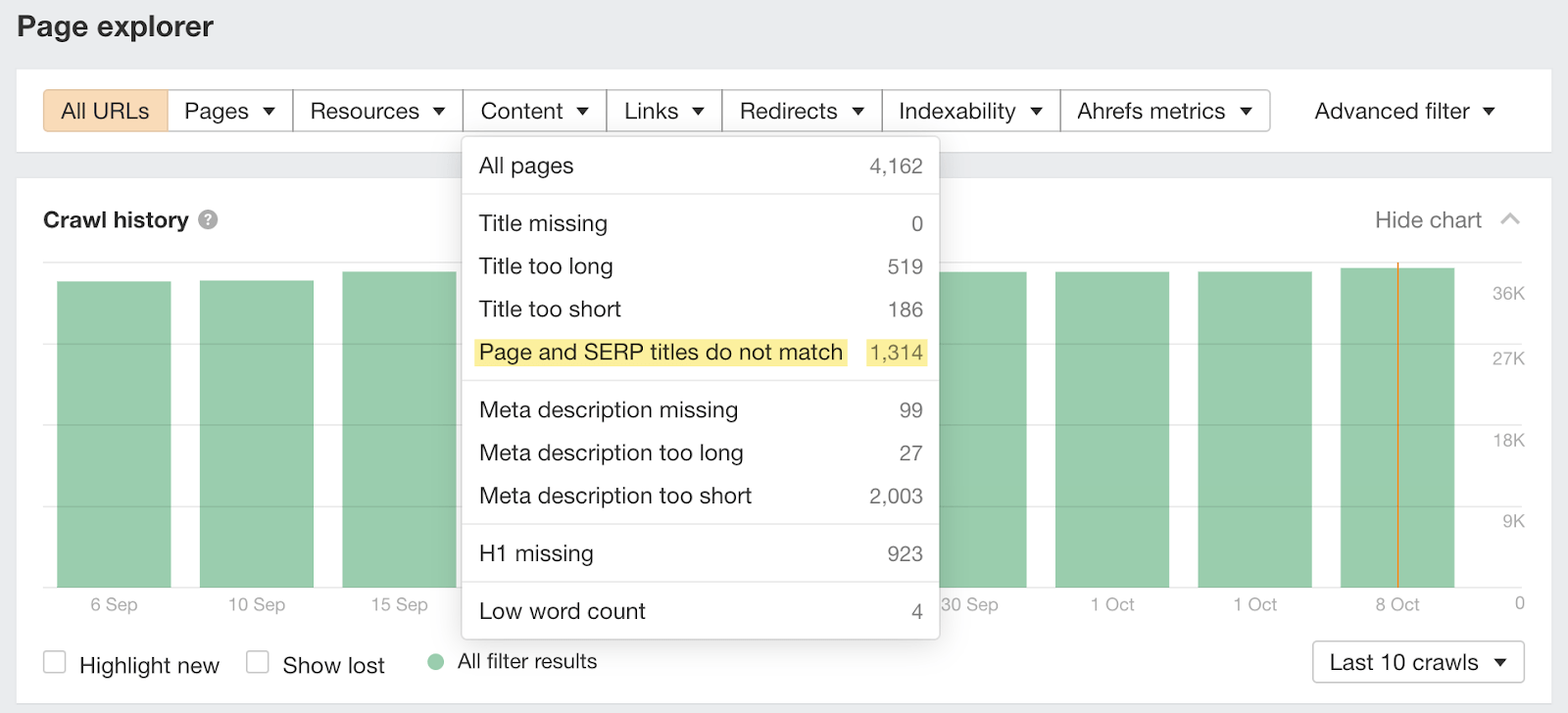
You’ll find this in the Page explorer report in Ahrefs’ Site Audit.
Google is now 33% more likely to rewrite title tags
Google’s been generating its own SERP titles and descriptions for a long time. But while we’ve all got used to meta descriptions getting rewritten 62.78% of the time, title tags were always more stable, and the changes weren’t so significant.
However, when we compared SERP titles for pages with unchanged title tags between June and September 2021, we found that Google rewrites them way more than before:
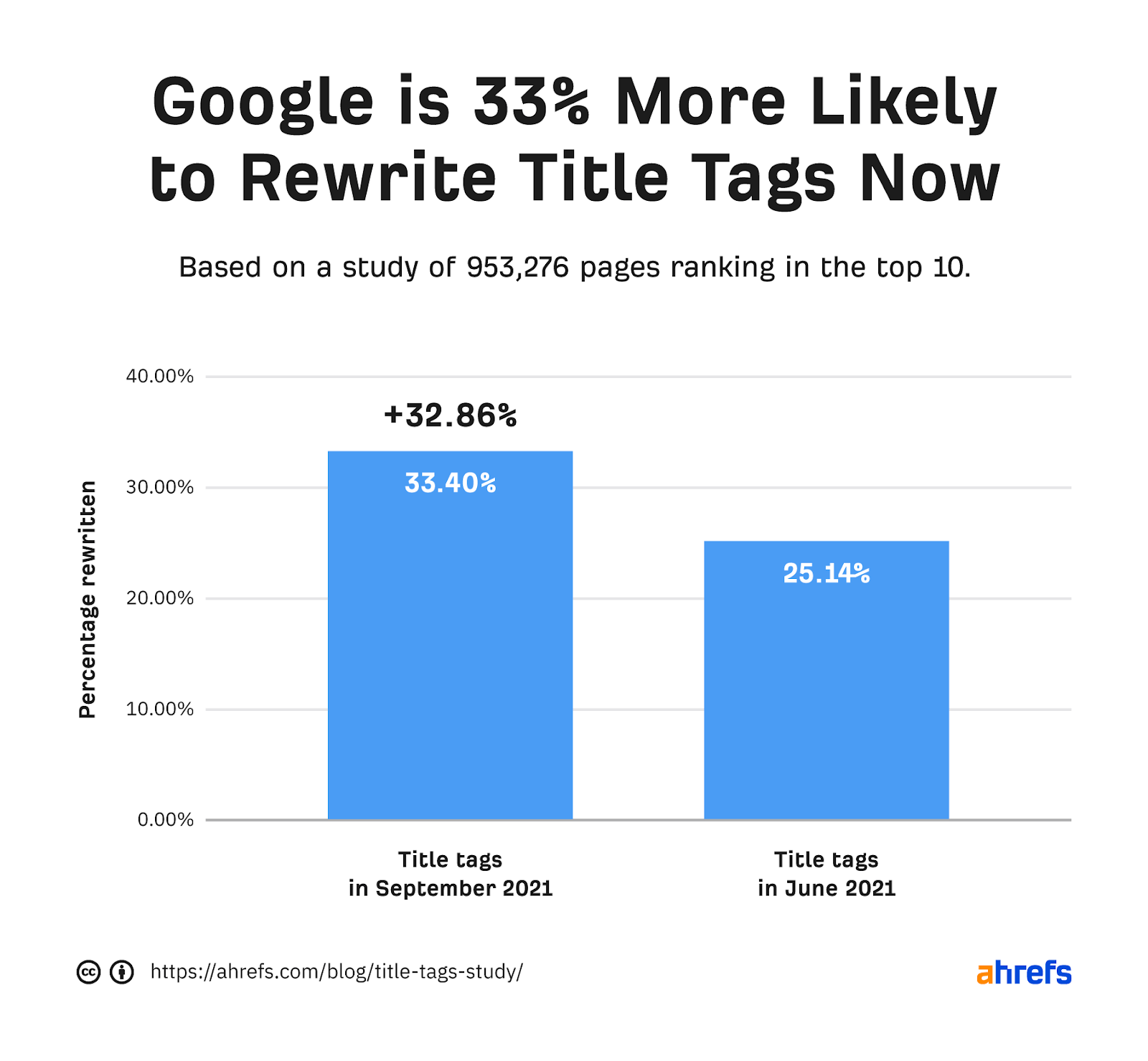
Title matching rate is comparable for fat-head and long-tail keywords
Google claims that it now rewrites title tags regardless of the search query, i.e., the title should stay the same across all SERPs.
My hypothesis is that if this didn’t hold true, Google would be more likely to generate its own titles for long-tail keywords. That’s because there’s much more variability in search intent compared to the main keywords people try to rank for.
We can confirm that there’s indeed not a significant difference for title generation between long-tail and fat-head keywords:
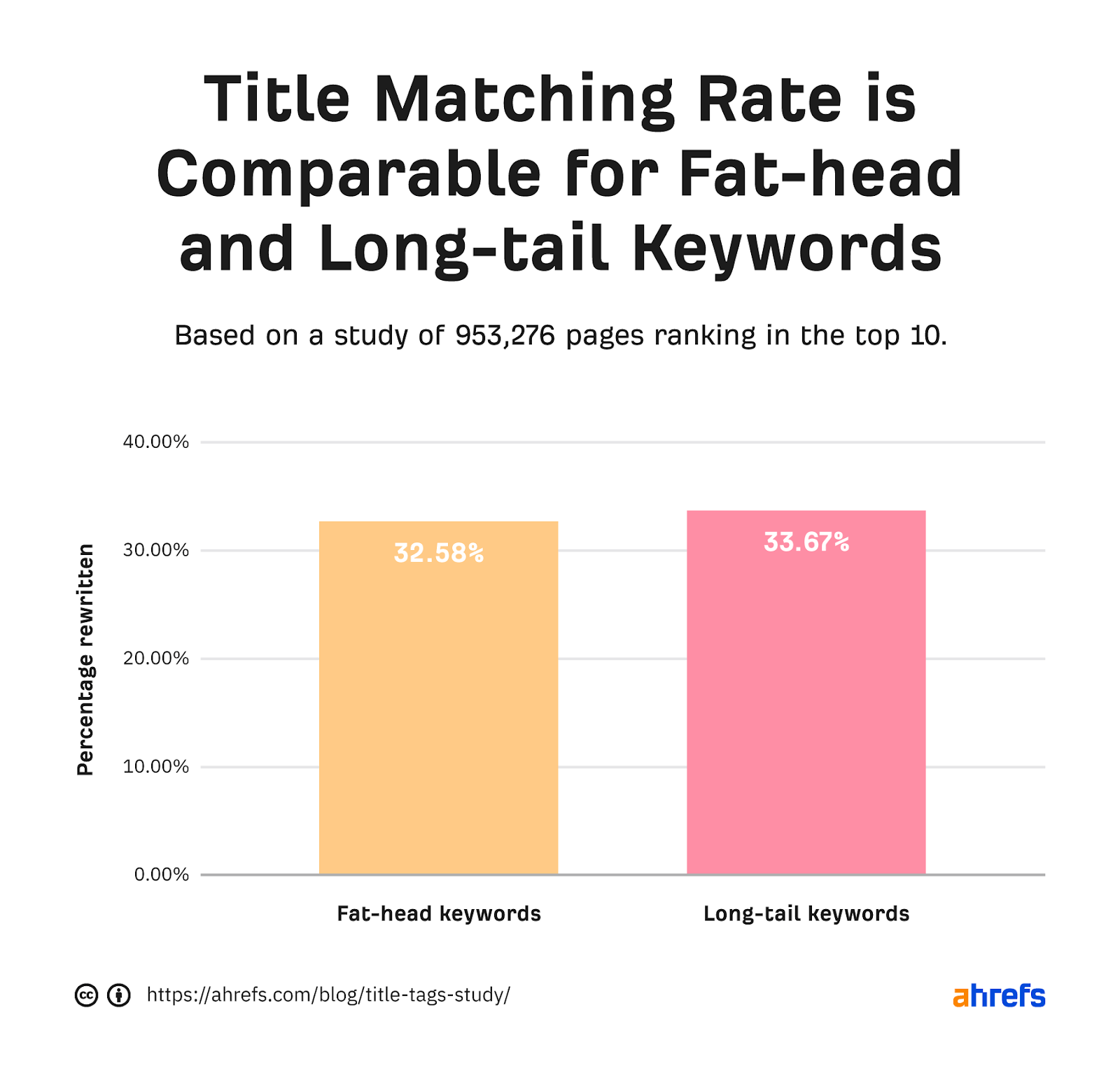
Keep in mind that the data here is a proxy to what Google claims, not proof. Comparing titles of the same page across SERPs may seem like a better option, but it also has its own intricacies (time, location, personalization).
When Google ignores the title tag, it uses H1 50.76% of the time instead
Headings are an obvious place to look for alternative SERP titles. And in cases where the SERP title and title tag differ, our data shows that Google pulls the SERP title from the H1 tag 50.76% of the time, the H2 tag 2.02% of the time, and a combination of H1 and H2 tags 1.31% of the time.
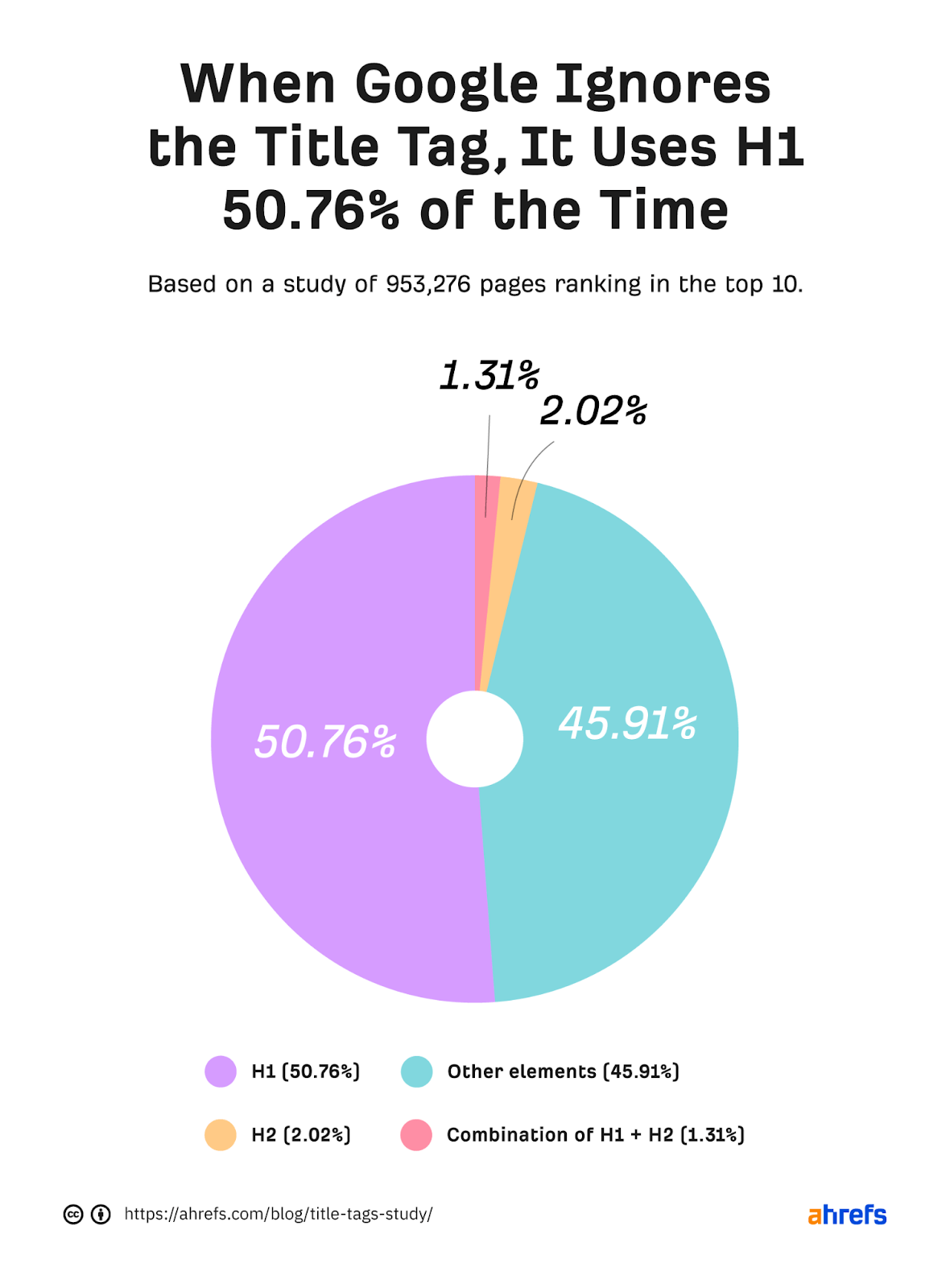
That leaves us with 45.91% of cases unaccounted for. According to Google, these SERP titles can also come from:
- Other content that’s large and prominent through the use of style treatments.
- Other text contained on the page.
- Anchor text on the page.
- Texts within links that point to the page.
After looking at some specific “other” cases, we came to the conclusion that Google might often combine multiple elements together to create a coherent title. However, that’s purely our hypothesis based on a few examples.
Google is 57% more likely to rewrite title tags that are too long
Google used to rewrite titles over 600px 29.45% of the time. Now it’s 46.12% of the time—a 56.6% increase.
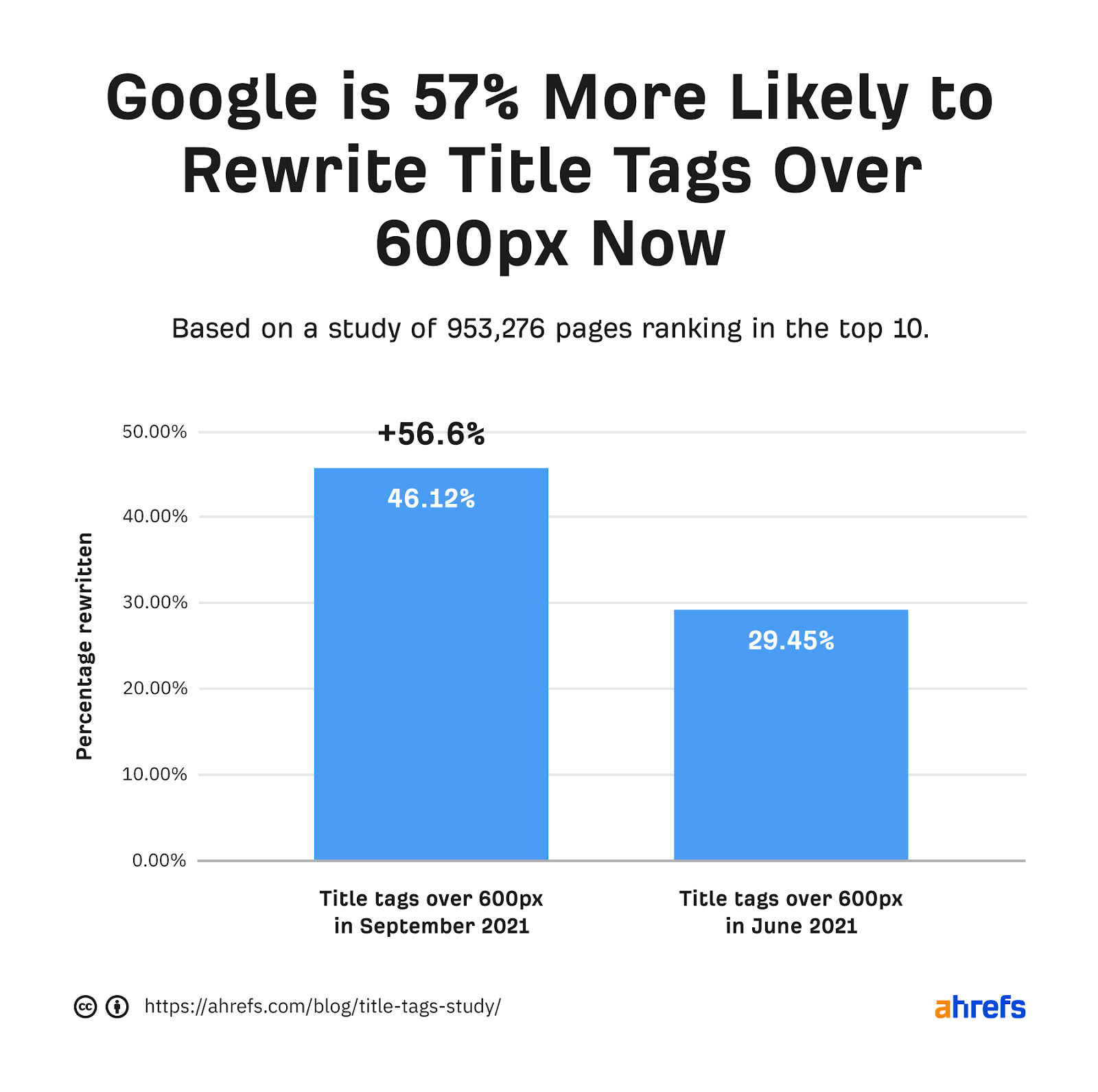
So, if you want to increase your chance of Google using your title tag, make sure to fit within 600px length, which is the limit for what SERPs can display. But the more useful rule of thumb is to keep your titles within 60 characters.
You can check which pages have longer titles after crawling your website with Ahrefs’ Site Audit:
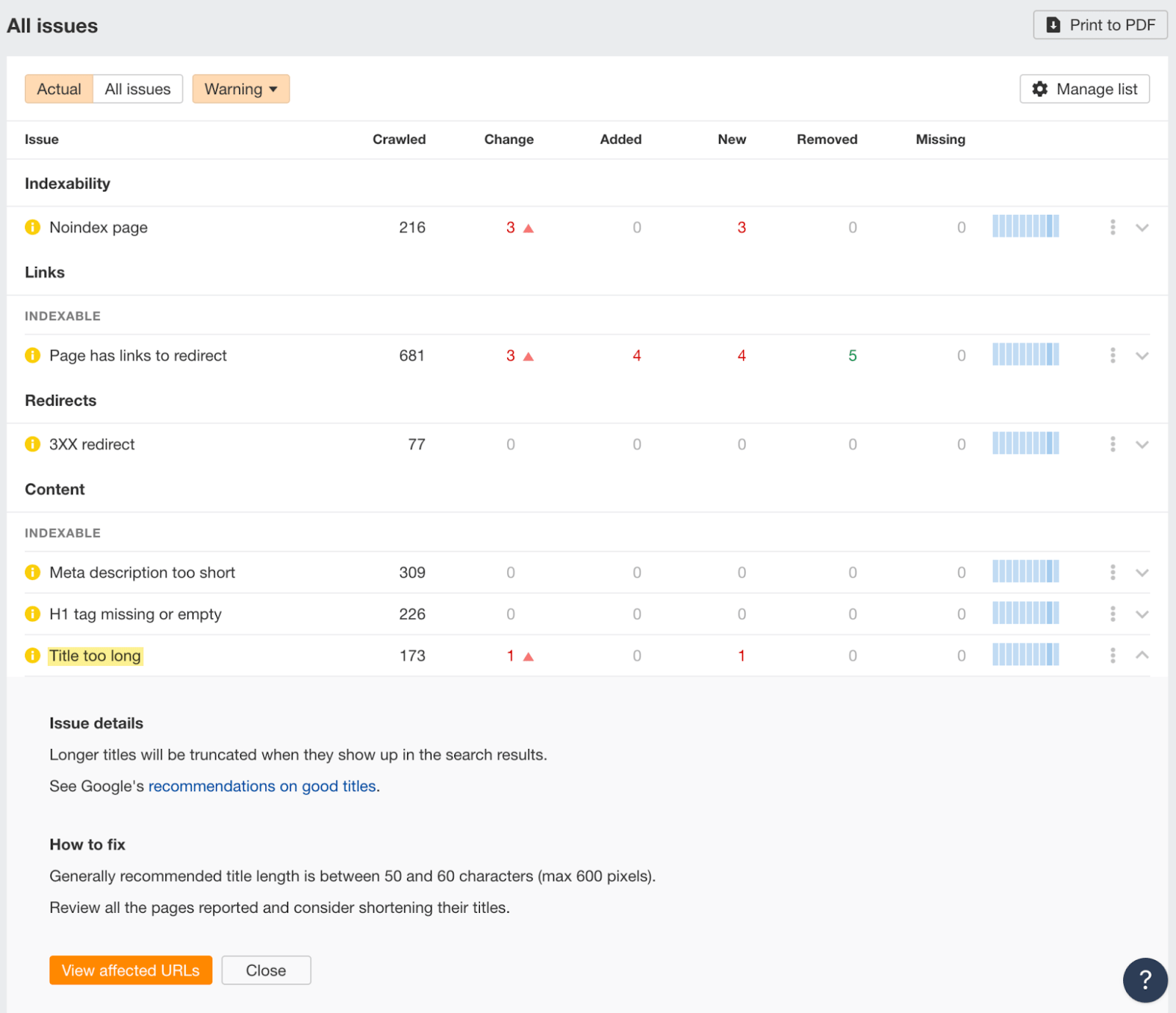
Final thoughts? Keep track of SERP title changes on your most important pages
Prevention is always better than cure. That means trying to craft the best titles possible to minimize the chances of Google rewriting them. Getting some of your titles rewritten is inevitable, though. And you should keep track of those cases.
Again, Site Audit will help you with that (it’s free in Ahrefs Webmaster Tools). After you crawl your website, head over to the Page explorer. In there, choose the preset filter “Page and SERP titles do not match,” click on “Advanced filter,” and rule out minor title changes that only involve truncation or adding your brand name:
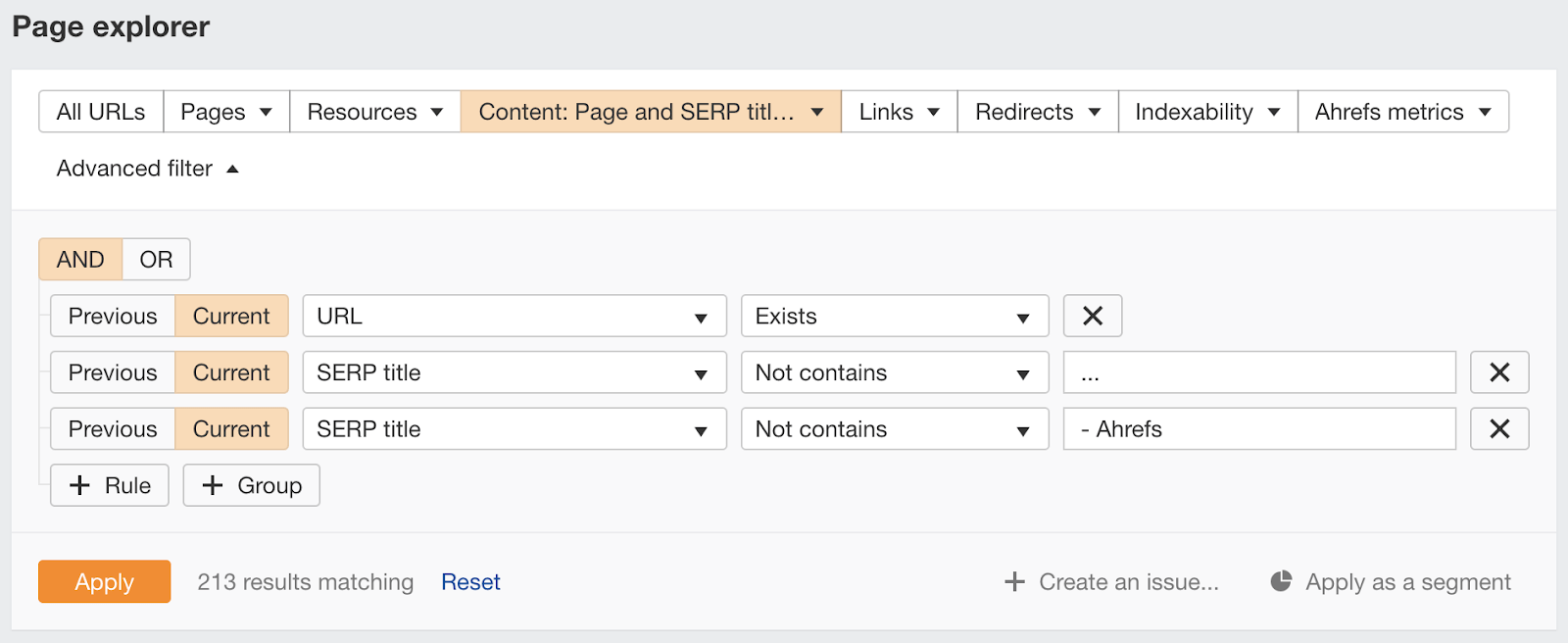
Click “Apply,” then sort the table below by organic traffic to show title changes that could be having the most impact:
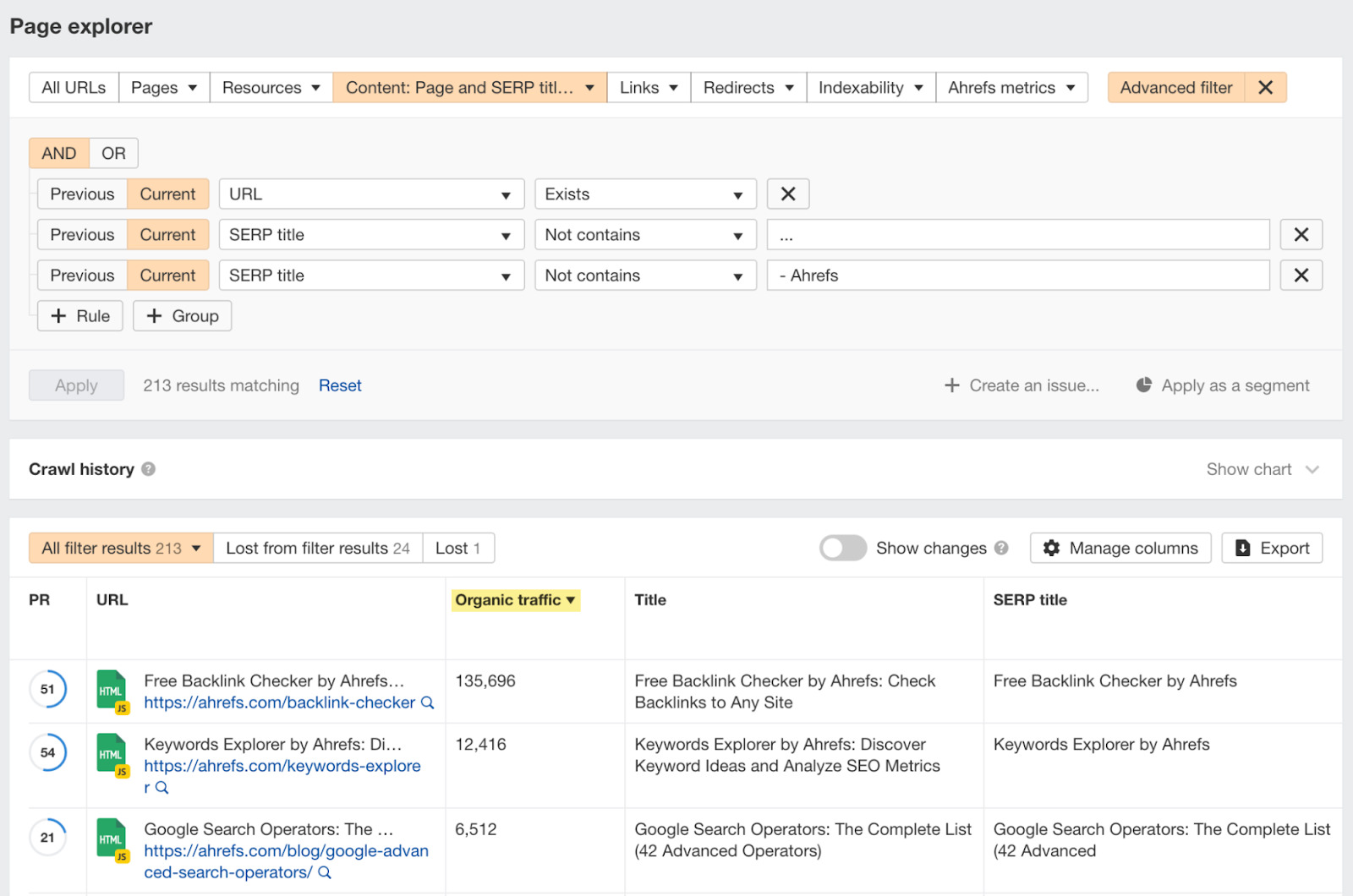
If a title change seems problematic, check the changes in CTR in Google Search Console. Then decide on how to fix the title tag. Does it align with the prevalent search intent of the main keywords? Is it up to date? Is it too clickbaity or spammy?
That’s all we can do to fight against Google rewriting the title tags.
Ping me on Twitter if you have any questions or comments.




